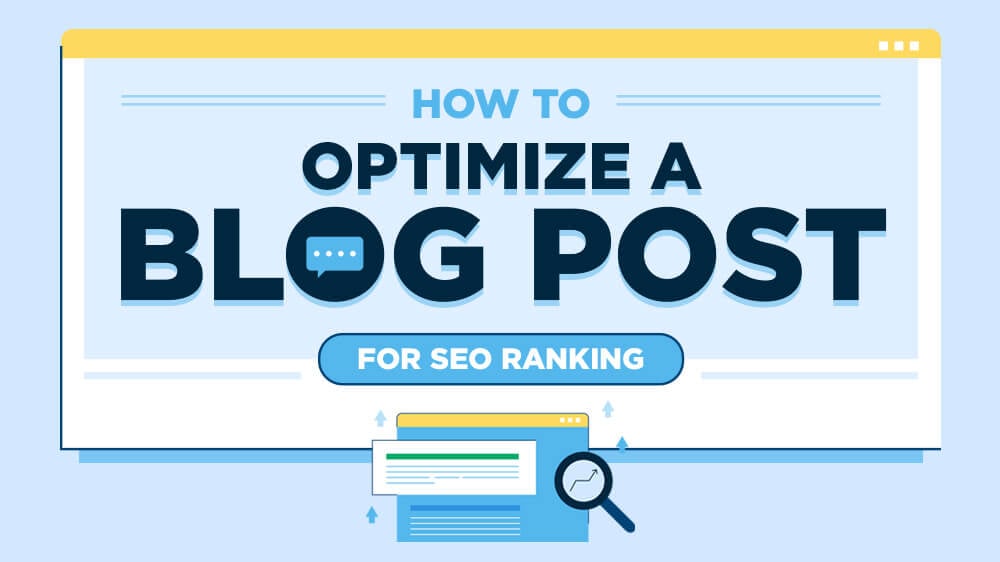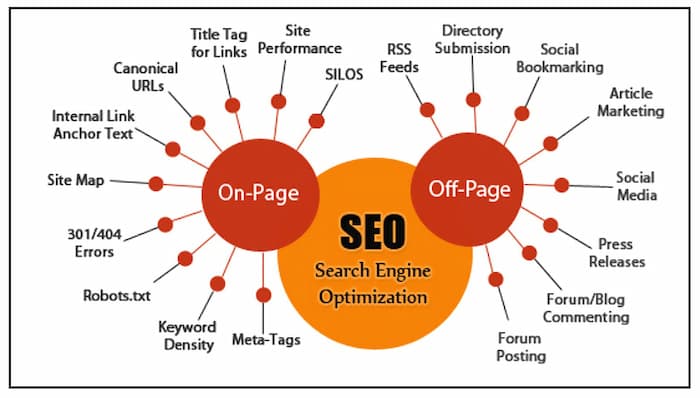
In the ever-evolving digital landscape, standing out among the sea of content is crucial. As we approach 2024, optimizing your blog posts for SEO is not just a good idea—it's a necessity. Imagine your blog post as a lighthouse in a stormy sea of information. Without proper SEO techniques, your lighthouse might go unnoticed, leaving your audience lost at sea. But with the right strategies, you can guide them safely to your shores.
Understanding the Basics: What is SEO?
Search Engine Optimization (SEO) is the practice of enhancing your website's visibility on search engines like Google. By optimizing your blog posts, you increase the likelihood of appearing higher in search engine rankings, thereby attracting more organic traffic.
Key Components of SEO in 2024
1. Keyword Research: The Foundation of SEO
The first step in optimizing your blog post for SEO is thorough keyword research. Identify the primary keyword and related LSI (Latent Semantic Indexing) keywords that your target audience is searching for. Tools like Google Keyword Planner and SEMrush can be invaluable in this process.
2. Crafting a Captivating Title
Your title (H1 tag) is the first impression your blog post makes. It should be compelling, include your primary keyword, and entice readers to click through. For example, "How to Optimize a Blog Post for SEO in 2024" is clear, concise, and keyword-rich.
3. Structuring Your Content with Headings and Subheadings
Using H2 and H3 tags helps search engines understand the hierarchy of your content. It also makes your blog post more readable. Think of headings as signposts guiding readers through your content.
4. Optimizing Your Meta Description
A well-crafted meta description can significantly improve your click-through rate. It should be a concise summary of your blog post, including your primary keyword. Keep it under 160 characters to avoid truncation.
5. Creating Engaging and SEO-Friendly Content
Your content should be engaging, informative, and optimized for search engines. Incorporate your primary keyword and LSI keywords naturally throughout your blog post. Remember, quality content is king.

6. Internal and External Linking
Internal linking helps search engines understand the structure of your website and can improve your blog ranking. External linking to authoritative sources adds credibility to your content. For example, linking to a reputable SEO guide from Moz can enhance your post's authority.
7. Optimizing Images
Images can enhance your blog post's visual appeal and improve SEO. Use descriptive file names and alt text that include your primary keyword. This helps search engines understand the context of your images.
8. Ensuring Mobile-Friendliness
With the rise of mobile usage, ensuring your blog is mobile-friendly is crucial. Google's mobile-first indexing means that mobile-friendly sites rank higher in search engine results.
9. Leveraging Social Media
Social media can drive significant traffic to your blog. Share your blog posts on platforms like Facebook, Twitter, and LinkedIn to increase visibility and engagement.
10. Monitoring SEO Trends
SEO is a dynamic field. Staying updated with the latest SEO trends and algorithms can give you a competitive edge. Follow industry leaders and blogs like Search Engine Land to stay informed.

Advanced SEO Techniques for 2024
1. Voice Search Optimization
With the rise of voice assistants like Siri and Alexa, optimizing your content for voice search is becoming increasingly important. Use conversational language and long-tail keywords to cater to voice queries.
2. Featured Snippets
Featured snippets appear at the top of search engine results and can significantly boost your blog's visibility. Structure your content to answer specific questions concisely to increase your chances of appearing in a featured snippet.
3. Schema Markup
Schema markup helps search engines understand the context of your content better. Implementing schema markup can improve your blog's visibility and click-through rate.
4. User Experience (UX)
A positive user experience can indirectly improve your SEO. Ensure your blog is easy to navigate, loads quickly, and provides valuable content to keep users engaged.
5. Local SEO
If your blog targets a local audience, optimizing for local SEO can be highly beneficial. Include local keywords and ensure your business is listed on Google My Business.
Conclusion: Embracing the Future of SEO
Optimizing your blog post for SEO in 2024 is about combining tried-and-true techniques with emerging trends. By focusing on keyword research, creating engaging content, and staying updated with the latest SEO developments, you can significantly enhance your blog's visibility and attract more organic traffic.
Remember, SEO is not a one-time task but an ongoing process. Continuously monitor your blog's performance, make necessary adjustments, and stay ahead of the curve. Your efforts will pay off in the form of higher search engine rankings, increased traffic, and a more engaged audience.
FAQs
What is the importance of keyword research in SEO? Keyword research is the foundation of SEO. It helps you identify the terms and phrases your target audience is searching for, enabling you to create content that meets their needs and improves your search engine ranking.
How do internal and external links benefit my blog's SEO? Internal links help search engines understand the structure of your website and can improve your blog ranking. External links to authoritative sources add credibility to your content, enhancing its authority.
Why is mobile-friendliness crucial for SEO? With the rise of mobile usage, ensuring your blog is mobile-friendly is essential. Google's mobile-first indexing means that mobile-friendly sites rank higher in search engine results.
How can I optimize my blog for voice search? Use conversational language and long-tail keywords to cater to voice queries. Structure your content to answer specific questions concisely to improve your chances of appearing in voice search results.
What is the role of user experience (UX) in SEO? A positive user experience can indirectly improve your SEO. Ensure your blog is easy to navigate, loads quickly, and provides valuable content to keep users engaged, which can lead to better search engine rankings.
By implementing these strategies, you'll be well on your way to mastering the art of optimizing your blog posts for SEO in 2024. Happy optimizing!
Posting Komentar